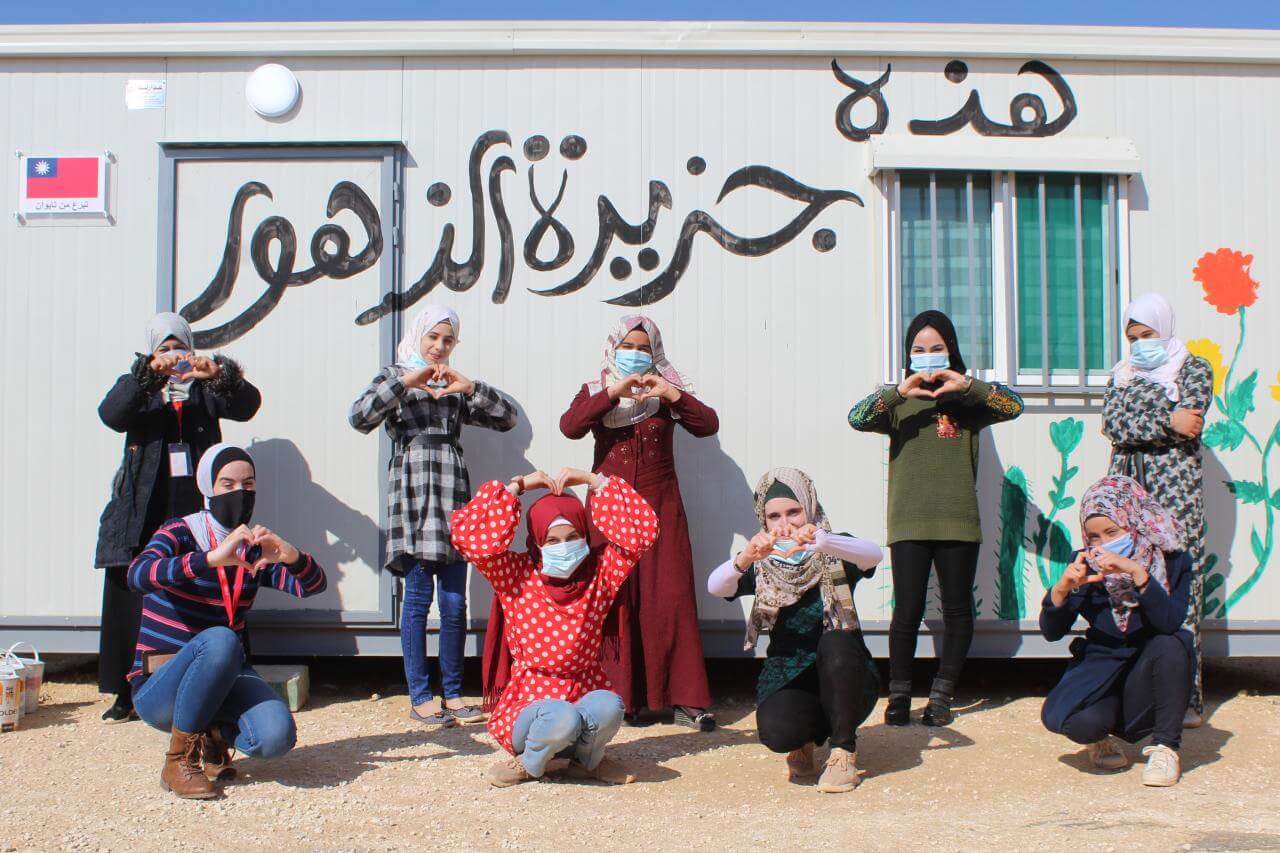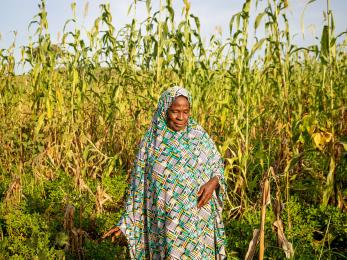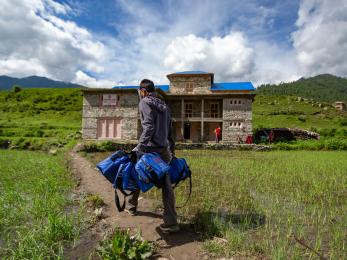9 ways our COVID-19 Resilience Fund will strengthen communities
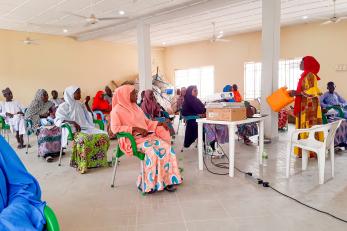
As the world faces COVID-19 together, we feel its effects in our individual lives. This virus exposes many of the ways that we and our communities are vulnerable. And it exposes the importance of having access to essential resources like clean water, accurate information, basic goods for families to survive and tools for communities to rebuild their economies.
For the people across the globe who are most vulnerable — those fleeing conflict, living in poverty or without access to healthcare — it’s critical that we unite to help them. The COVID-19 Resilience Fund supports public health measures that slow the spread of the virus, provides access to basics for vulnerable families and helps economies recover from this crisis.
Here are the top nine ways Mercy Corps’ COVID-19 Resilience Fund will help vulnerable communities:
1. Clean water
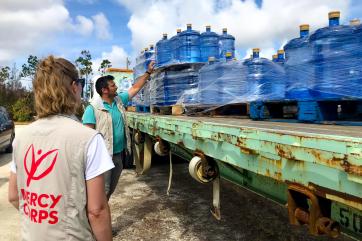

Water is a critical resource and key component of slowing the spread of the virus. That’s why we’re on the ground in vulnerable communities around the world, providing clean water for hygiene, drinking and cooking.
Mercy Corps teams in the Bahamas continue to produce and distribute clean drinking water through a water treatment plant running reverse osmosis machines — a solution we helped create after Hurricane Dorian.
2. Sanitation equipment
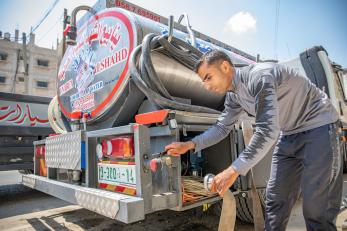
For displaced populations, access to toilets and washing facilities is extremely limited. To help keep refugee populations in Iraq safe from infection, we’re repairing water facilities in many public health centres and providing water trucking and solid waste management services.
Last year, our WASH programme reached 7.7 million people. During the pandemic, we’re prioritising life-saving programming like WASH, so vulnerable communities can access sanitation supplies and facilities needed to protect against the spread of viruses.
3. Reliable information
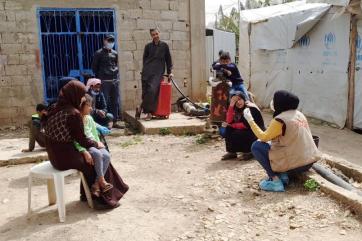
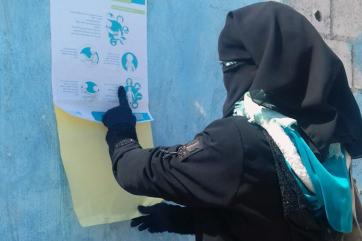
Efforts to reduce transmission depend on widespread, up-to-date information on how to safeguard against the virus. Our teams are working with local leaders in at-risk communities, providing advice around handwashing, social distancing, and infant and young child feeding and care practices practices.
We’re leveraging our experience in Liberia and the Democratic Republic of Congo, where our teams partnered with community organisations to design locally appropriate health promotion activities around the dangers of Ebola, filling a gap in raising awareness and sharing life-saving information among millions of people.
Right now, teams in Syria are rapidly working to reduce the risk of spread by sharing information on COVID-19 alongside still-needed basic essentials to people fleeing conflict.
4. Psycho-social support
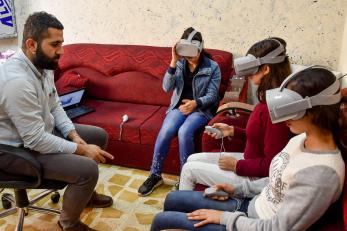
With so much uncertainty about the future and changes to our everyday lives, the emotional toll of the virus is tremendous. We know that living in a state of crisis can have lasting effects on an individual’s mental health, which is why we’re innovating programmes that help people who have experienced trauma.
In Jordan and Iraq, we’re using virtual reality to help young refugees from Syria work through their emotions in a safe space. The COVID-19 Resilience Fund can help us expand programmes like this to reach vulnerable communities that need this critical support.
5. Food and cash assistance
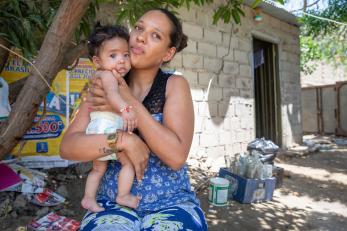
For vulnerable families without safety nets or savings accounts, a pandemic can make it difficult — if not impossible — to get the basics needed to survive. One of the quickest ways we help them is with food and money. Cash distributions support people in an efficient, sustainable and dignified way, and they help jump-start local economies and connect people to financial services.
When nearly 2 million Venezuelans fled economic, governmental and social collapse, they had to rebuild their lives in Colombia. Our teams helped Ana Maria and her husband Jose along with many other families forge a path forward through cash disbursements. Ana Maria was pregnant with 3-month-old Fabiola when the family used an emergency cash disbursement to get medical care for the birth. They say they would have had no way to go to the hospital without this help.
Right now, we’re providing critical assistance like this in Iraq to support vulnerable families, including those whose livelihoods have been disrupted by lockdowns that help stop the spread of the virus.
6. Hygiene kits
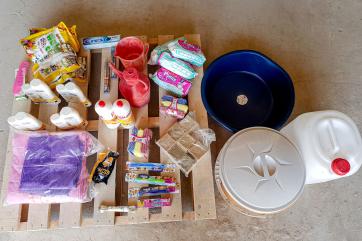
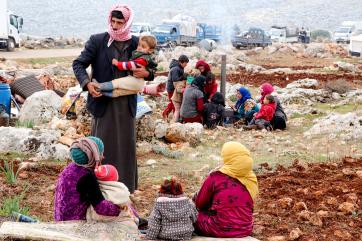
We’re continuing to help vulnerable people with essential resources, but the threat of COVID-19 creates an urgent need to prevent infection. To meet this new challenge, our teams are providing families who participate in our cash programming with hygiene kits.
In Northwest Syria, Mercy Corps is already providing rapid assistance to vulnerable populations, including clean water and hygiene kits with food and cash disbursements.
7. Market-based support
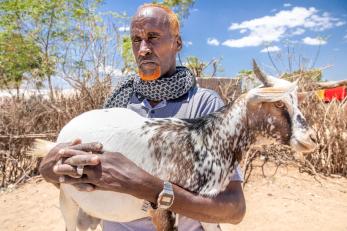
As COVID-19 throws entire economies into recession, people already struggling with poverty face the greatest challenges ahead. Opening markets and financial services is as essential to their futures as ever.
In areas of Ethiopia affected by extreme drought, Mercy Corps used a market-based approach to help pastoralists recover. To help, we improved veterinary supply markets, expanded access to financial services, and provided timely and accurate weather and market information. When drought hit, we provided subsidies, enabling traders to increase livestock purchases, and stabilising income for vulnerable pastoralists and their families.
Our COVID-19 Resilience Fund will help us extend comprehensive market-based solutions to local economies affected by the pandemic.
8. Boosting agricultural communities
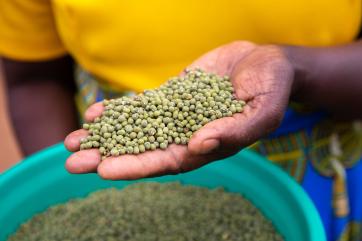
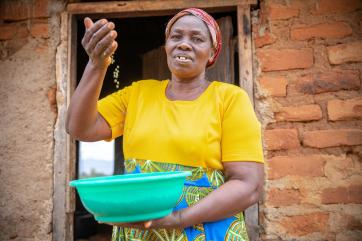
The pandemic affects nearly every aspect of our lives, including what we eat. Building food security in vulnerable communities will be key in ensuring they survive and recover from this crisis.
With drought causing food sources to dry up in Kenya, our AgriFin programme is connecting small-scale farmers with the resources and information to help grow their crops and feed their families. Expanding programs like this will help stabilise communities, so they can take on future shocks and stresses.
9. Small business support
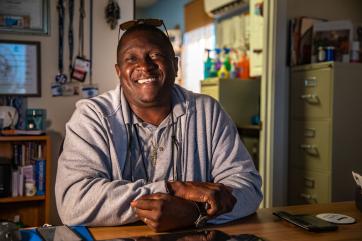
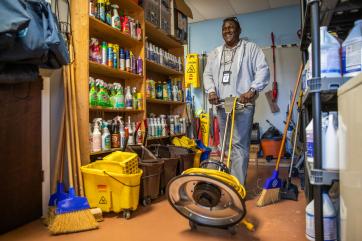
Small business owners and entrepreneurs are particularly at risk to the economic shocks of any crisis, and they are key to economic recovery.
When Hurricane Dorian hit the Bahamas, small businesses were devastated. The small business grants we provided allowed people like Jonathan to buy new equipment, get his business up and running, and help businesses around the island recover from the disaster. With COVID-19 causing further economic stress in the Bahamas, due in large part to a sharp decrease in tourism, the Mercy Corps team is working to provide additional support to businesses affected by the pandemic to help ensure that economic recovery will continue through this new crisis.
Your support
The world hasn’t experienced a pandemic like COVID-19 in over 100 years. Mercy Corps is urgently seeking £20 million ($25 million USD) to enable communities around the world to prepare for and recover from the impact of the virus.
Mercy Corps has decades of experience working with vulnerable communities to overcome complex challenges, quickly adapting and employing innovative solutions in times of crisis to build long term resilience. This moment is no exception.
We cannot do this without your help. Please join us.
